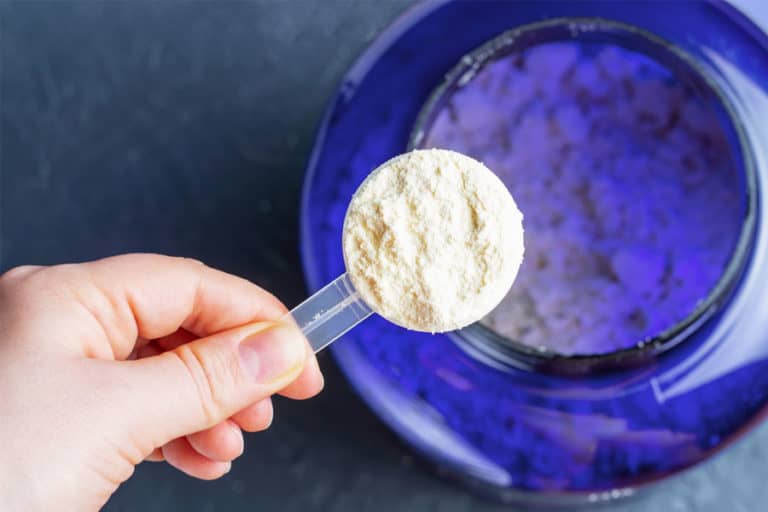Weight Gain For Teens: Meal Plan For Underweight Teens

Ideal weight for teens | Underweight Health Problems | Meal Plan | Healthy Foods | Other ways
Every teenager grows and develops at their own pace. However, many teenagers have concerns about being underweight. Poor weight can lead to several health problems, including fatigue, weak bones, and poor immune function.
Teenagers with celiac disease, Crohn’s disease, and other conditions that affect digestion may have trouble absorbing nutrients from food and may lose weight.
If you’re a teenager looking to gain weight, you can do a few things to gain weight gradually.
Weight gain for teens: Ideal weight for teens
The ideal weight for teens depends on several factors, including age, gender, height, and body composition. Here is the average weight range for teens depending on their age and gender:
| Age | Teenage Boys | Teenage Girls |
| 13 | 75.39-115.9 lbs | 76.2-116.6 lbs |
| 14 | 84.6-128.9 lbs | 83.5-125 lbs |
| 15 | 94.7-141.3 lbs | 89.7-130.9 lbs |
| 16 | 104.2-152.1 lbs | 94.5-134.7 lbs |
| 17 | 111.9-160.4 lbs | 97.8-137.3 lbs |
| 18 | 117.2-166.4 lbs | 99.8-139.7 lbs |
| 19 | 120.8-170.8 lbs | 101.1-142.6 lbs |
Related Articles
Health problems of being underweight
According to The National Health and Nutrition Examination Survey, [1]Centers for Disease Control and Prevention: Prevalence of Underweight Among Children and Adolescents Aged 2–19 Years: United States, 1963–1965 Through 2017–2018 approximately 4.1% of American children and teenagers are underweight. Although being underweight may not seem like a big deal in a slim-physique-obsessed world, it can lead to several health problems.
Here are the health risks associated with being underweight:
1. Weak bones
Weak and brittle bones are a common problem in teens who are underweight. Bones need nutrients and minerals, such as calcium and vitamin D, to stay strong. Underweight children often lack these nutrients making their bones weak and fragile. This can lead to an increased risk of fractures.
2. Weak immune system
Being underweight can weaken the immune system. [2]PubMed: Body mass index and the risk of infection – from underweight to obesity Teens with low immunity are more likely to get sick and have a harder time-fighting infections.
3. Anemia
Anemia [3]ResearchGate: Underweight as a Risk Factor for Nutritional Anaemia – A Cross-sectional Study among Undergraduate Students of a Medical College of Haryana is a condition in which there is a decrease in the number of red blood cells or hemoglobin in the blood. This can lead to fatigue, shortness of breath, and an increased risk of infection. Underweight teens are more likely to become anemic.
4. Malnutrition
Malnutrition [4]National Health Service: Malnutrition is a condition where the body does not get enough nutrients. This can further lead to a host of other problems, such as stunted growth, poor mental health, weakened immune system, and problems with organ function.
Meal plan for underweight teens to gain weight
Meal plan for underweight teens is one way to help your teen gain weight in a healthy manner. Here is a 7 -day meal plan for underweight teens that can help you gain weight.
Day 1
Breakfast: Oatmeal with raisins, full-fat milk, and honey
Lunch: Soup and sandwich with whole-wheat bread, turkey, and cheese
Dinner: Ground beef spaghetti with egg salad
Day 2
Breakfast: Vegetable muffins with almond butter smoothie
Lunch: Salmon fish sandwich on whole-wheat bread with Caesar salad on the side
Dinner: Grilled chicken breast with mashed potatoes and green beans
Day 3
Breakfast: Deviled eggs with toast
Lunch: Chicken salad with whole-wheat pita bread
Dinner: Salmon with rice and steamed broccoli
Day 4
Breakfast: Yogurt with granola and berries
Lunch: Turkey wrap with lettuce, tomato, and cheese in a whole-wheat tortilla
Dinner: Beef stew with carrots, potatoes, and celery
Day 5
Breakfast: Cottage cheese pancakes
Lunch: Ham and cheese sandwich with broccoli and melted cheese
Dinner: Pork chops with baked sweet potato and sauteed spinach
Day 6
Breakfast: Oatmeal with apples, nuts, and berries
Lunch: Grilled cheese sandwich with tomato soup and chickpea salad
Dinner: Roast beef with mashed potatoes and green beans
Day 7
Breakfast: Avocado toast with scrambled eggs and a glass of full-fat milk
Lunch: Sandwich on whole-wheat bread with a side of applesauce
Dinner: Chicken stir-fry with rice and vegetables
Healthy foods to consume to gain weight for teens
Teens who are underweight need to consume more calories than those who are at a healthy weight. Here are some healthy foods that can help you gain weight:
1. Protein-rich foods
You can encourage weight gain by focusing on eating protein-dense foods. Protein helps build muscle, which can lead to a healthier type of weight gain. Good sources of protein include:
- Meat
- Fish
- Eggs
- Lentils
- Dairy products
2. Complex carbohydrates
Complex carbohydrates are a type of healthy carbohydrate that take longer for the body to break down. This means they provide a slow and steady source of energy. Good sources of complex carbohydrates include:
- Whole-wheat bread
- Oatmeal
- Quinoa
- Brown rice
3. Healthy fats
Healthy fats are an important part of a weight gain diet for teens. Good fats translate into healthy calories providing energy and improving weight. Healthy fats also help the body absorb certain vitamins, minerals, and other nutrients better. Good sources of healthy fats include:
- Nuts
- Seeds
- Fatty fish
- Avocados
- Olive oil
- Eggs
Other ways for healthy weight gain in teens
Here are some more factors to keep in mind when increasing teenagers’ weight:
1. Keep an eye on calorie intake
If you are trying to gain weight, you need to make sure you are eating more calories than you are burning.
A good way to do this is to keep track of your calorie intake. Keep track of your food intake and physical activity levels by maintaining a journal.
2. Don’t skip meals
The first thumb rule to gaining weight is to not skip any of your meals. Skipping meals and snacks can lead to weight loss. If you are unable to eat too much at one time, try eating smaller meals more often. Add one or two smaller snacks to your daily diet.
Never skip your breakfast at any cost. Have a healthy and filling breakfast every day.
3. Exercise regularly
Exercise is essential for gaining weight as it helps to build muscle mass. Regular exercise can also increase your appetite, thus promoting more weight gain.
4. Avoid junk food and sugary drinks
Junk food and sugary drinks are high in calories but low in nutrients.
They are also dangerous for gut health. Poor gut health leads to lower absorption of nutrients in the body. This can negatively impact the weight gain process and the overall health of teenagers. Instead, eat healthy snacks like fruits, vegetables, and whole-grain snacks.
Conclusion
Teenage weight gain can be a challenge for some underweight teens. But this is also the best time to start a healthy weight gain program. After all, this is the age with the highest growth potential.
However, always remember the goal is not to gain weight fast but to gain weight in a healthy way. If you notice any eating disorder in your teenage child, consult your doctor.
References
| ↑1 | Centers for Disease Control and Prevention: Prevalence of Underweight Among Children and Adolescents Aged 2–19 Years: United States, 1963–1965 Through 2017–2018 |
|---|---|
| ↑2 | PubMed: Body mass index and the risk of infection – from underweight to obesity |
| ↑3 | ResearchGate: Underweight as a Risk Factor for Nutritional Anaemia – A Cross-sectional Study among Undergraduate Students of a Medical College of Haryana |
| ↑4 | National Health Service: Malnutrition |





